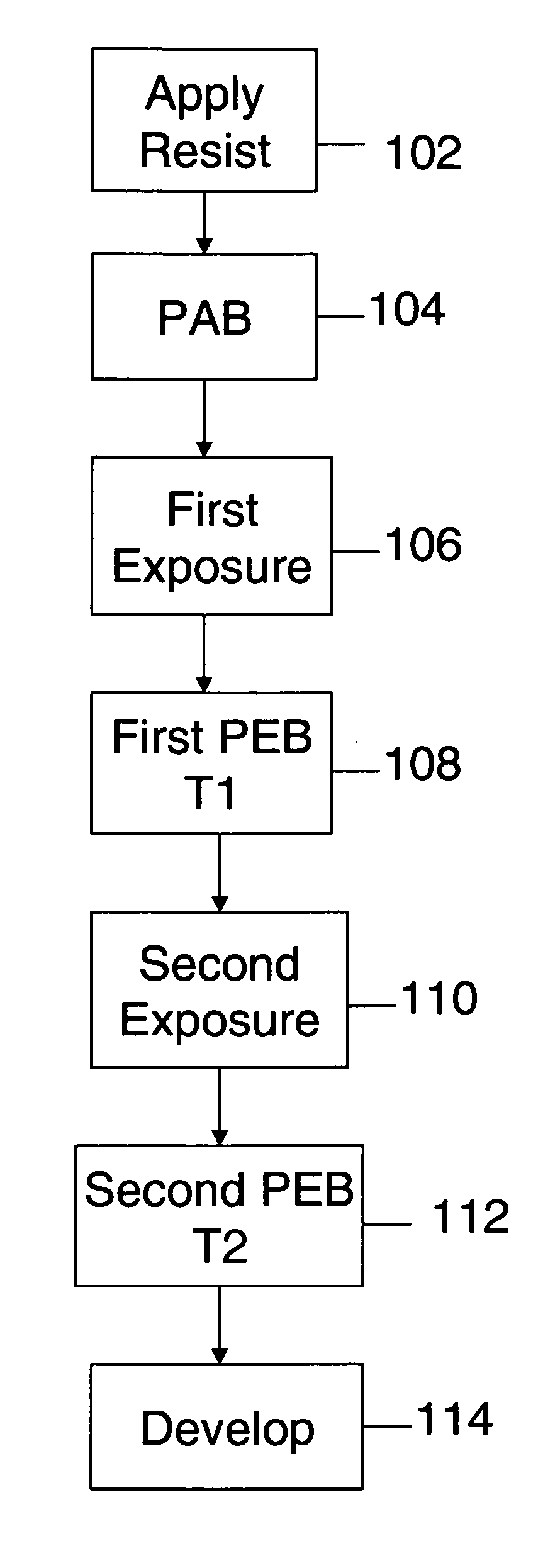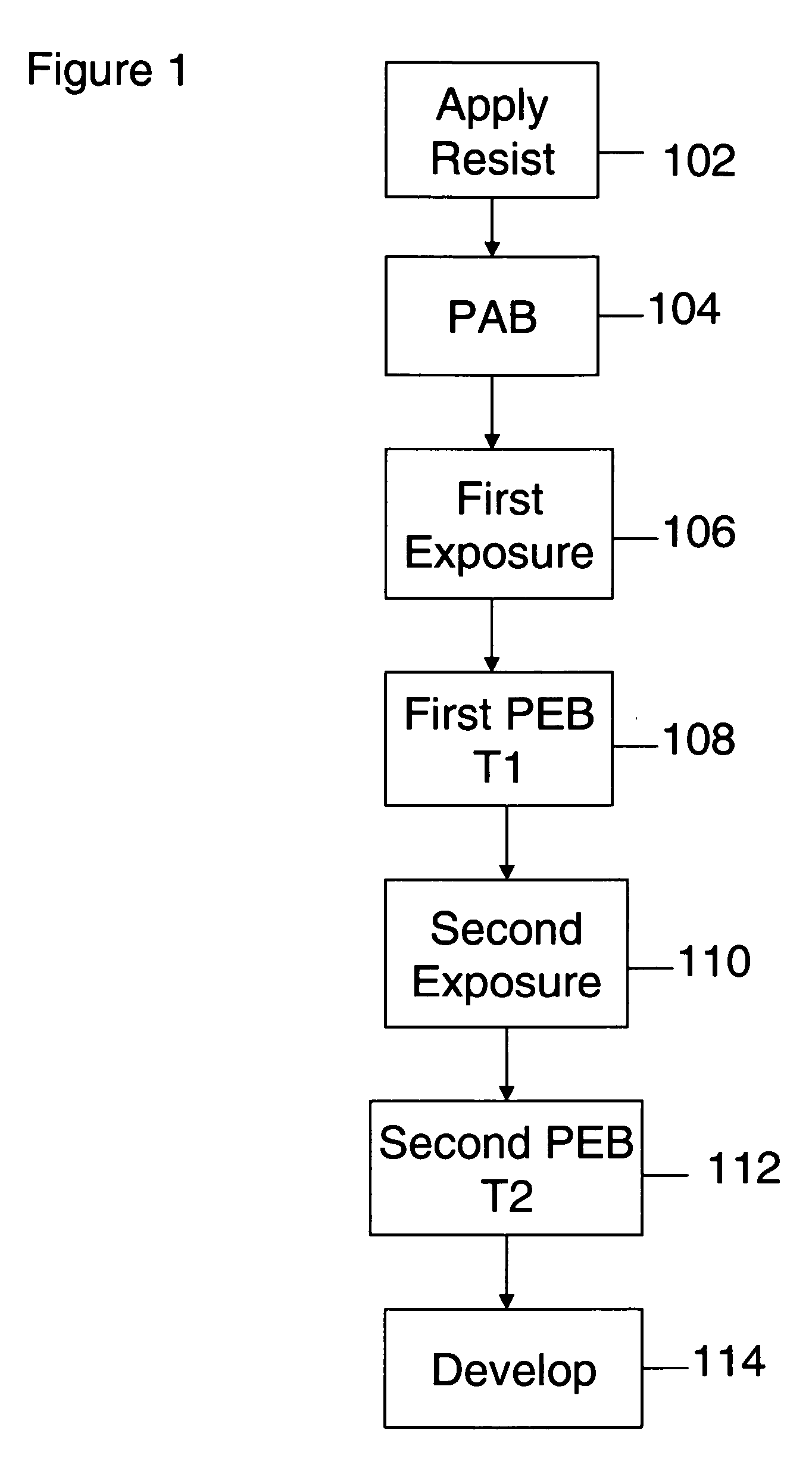Method for lithography for optimizing process conditions
a technology of process conditions and lithography, applied in the field of lithography, can solve the problems of limited throughput, inability to meet the aggressive resolution targets of future generation products, and inability to use conventional optical projection lithography
- Summary
- Abstract
- Description
- Claims
- Application Information
AI Technical Summary
Problems solved by technology
Method used
Image
Examples
Embodiment Construction
[0011] The present invention relates to a method of lithography, and in particular, a method for optimizing process conditions for lithography that involves a sequential exposure of a single resist layer by one or more radiation sources.
[0012] The invention is applicable to hybrid lithography using resists that require a post-exposure bake (PEB), e.g., chemically amplified resists used in semiconductor manufacturing. The post-exposure bake, which is performed after the resist is exposed to certain radiation, provides thermal activation that amplifies the chemical reaction induced by irradiation. The amplification gives rise to the high sensitivity for chemically amplified resists. The present invention provides for a different post-exposure bake for each exposure step, which allows the resist to be processed at different sensitivities. Thus, processing conditions of the resist for each radiation source can be independently optimized.
[0013] This process is applicable to lithography...
PUM
| Property | Measurement | Unit |
|---|---|---|
| radiation wavelength | aaaaa | aaaaa |
| radiation wavelength | aaaaa | aaaaa |
| radiation wavelength | aaaaa | aaaaa |
Abstract
Description
Claims
Application Information
 Login to View More
Login to View More - R&D
- Intellectual Property
- Life Sciences
- Materials
- Tech Scout
- Unparalleled Data Quality
- Higher Quality Content
- 60% Fewer Hallucinations
Browse by: Latest US Patents, China's latest patents, Technical Efficacy Thesaurus, Application Domain, Technology Topic, Popular Technical Reports.
© 2025 PatSnap. All rights reserved.Legal|Privacy policy|Modern Slavery Act Transparency Statement|Sitemap|About US| Contact US: help@patsnap.com


